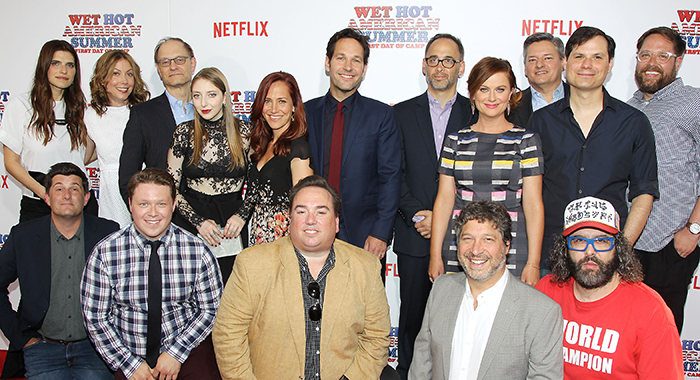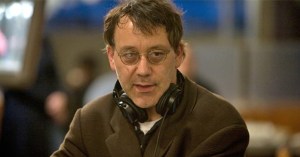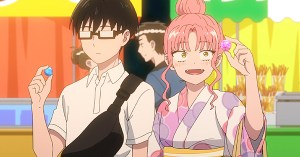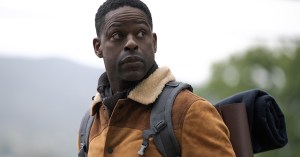Wet Hot American Summer Creators on the Importance of Making Each Other Laugh
Michael Showalter and David Wain (Sort Of) Explain How Their New Netflix Show Came Together
In 2001, David Wain and Michael Showalter gave us the film Wet Hot American Summer, a send-up of teen sex comedies from the late 1970s and early 1980s like Meatballs and Porkys, set against the absurdly high stakes of the final day at a Maine sleep-away camp. In the years that followed, Wet Hot American Summer became a cult favorite, in large part because its roster of talent, which included Amy Poehler, Paul Rudd, Elizabeth Banks, and Bradley Cooper, would go on to become big stars. After years of rumors that WHAS would have some form of a reunion, Netflix announced in January that the property would indeed be back as an original series this summer.
Wet Hot American Summer: First Day of Camp, which premieres as a complete season this Friday on Netflix, is a prequel that takes place just weeks before the movie — only now, the actors (who were too old to play their characters in 2001) are 15 years older. Rotten Tomatoes talked with creators Wain and Showalter about how they were able to pull off this feat of getting the gang back together (some of it slightly exaggerated), all the while remaining true to their vision of Camp Firewood.
Sarah Ricard for Rotten Tomatoes: I remember in the movie Wet Hot American Summer where you say something like, “We could meet again in 10 years” — and that’s not what you do in your TV show.
Michael Showalter: You’d think that we would.
David Wain: Actually, at the end of the movie though, we do show them meeting 10 years later, where we give a little taste of it. Who knows? Maybe we’ll show all of that at some point in the future, but this one takes place two months earlier, on the first day of the same summer.
Rotten Tomatoes: Okay, so where do we find the characters instead?
Showalter: We find the characters in all different places.
Wain: For example, Janeane Garofalo, Beth’s character, is not the director of the camp yet. She is the head counselor along with Jason Schwartzman, his character Greg. Then we find out what happens.
Showalter: Some of them are brand new; some of them are returning. A lot of them are already friends.
Wain: It’s a real origin story of how the events on the last day of camp came to be.
Showalter: Precisely.
Rotten Tomatoes: Has the tone changed since the movie?
Showalter: I don’t think so. I mean, I think it might be more like a higher ratio of jokes, but very much the sensibility, the kind of silliness, the sentimentality, and the nostalgia is the same.
Wain: The feel of it is even more like the original than I even thought it would be.
Showalter: Actually, this show is more like the original than the original.
Wain: That’s the truth. Get your head around that.
Showalter: The original is somehow hacky now. So, actually, the original movie was very derivative of this show.
Wain: The original pitch though, when we went to financiers back in 1997, trying to start raising money to make the original movie, was, “It’s a two-part thing. We’re going to make a feature film about the last day of camp, and then in 15 years, we’re going to do a streaming show about the first day of camp.” So that’s how we did it.
Showalter: So we said, “You could choose to invest in either one of them.” Some people wanted to do the feature and then Netflix was there and they said, “Look, we don’t exist yet, but when we do, we’d probably be interested in the streaming version.”
Wain: Netflix was worried because they knew that Orange is the New Black was going to be in June and they were like, “Okay, you can do end of July.”
Showalter: And Netflix is a person. Net Flix.
Rotten Tomatoes: As long time collaborators, how has your dynamic changed, if at all?
Wain: I think it’s a variation. In so many ways, it’s amazing how it doesn’t change. We started working together when we were in our teens in college. A lot of what we do is exactly the same thing that we did when we were 18 years old, which is pitch each other ideas and jokes and “I like that,” “No, I don’t like it,” “Let’s debate that,” “What if we did this?” “How about if we cast that person?” — whatever. It’s amazing how, yes, we’ve learned a lot and we’ve changed a lot and we improve things, but the way of working, in so many ways, is the same.
Rotten Tomatoes: Do you have an idea of what makes for good collaborators in a more general sense?
Showalter: Every collaboration is very different. I think you have to figure out how to get to the place where you’re both operating at your maximum. You want to figure out what is the way to maximize the partnership.
Wain: For me, with us, I think — and I would apply it to any other partnerships that I have — is that there’s a basis bedrock trust that we both sort of agree on in general: what’s funny and what works or what we’re doing in this particular project anyway. So that when we are debating about this particular joke or this particular shot, we know that they’re both coming from a place of we know that we’re looking at the same big picture.
Rotten Tomatoes: There are certain partnerships in which both parties are not afraid to show how weird they can be. I think Key and Peele are like that, and I think you guys certainly fit that criteria as well. When you’re willing to have that trust with each other and then share it with everybody, it lands so much better because it’s not watered down.
Showalter: When we were doing this, all the way back when we were doing The State, one of the turning points for all of us comedically — and that’s all the Reno [911] people too, Michael Black, all of us — was, because we were always writing sketches for ourselves, we’d be like, “We think this is hilarious but no one else would think it was funny.” Those were the sketches that, for the first season, weren’t making it into the show. Then as we continued going, we started dipping our toe in those sketches that we think are funny but that we would never show that to anybody. Those ended up becoming the sketches that became who we were. That kind of became our entire philosophy comedically. It was like we’re really just trying to make each other laugh then hope that the audience comes along with us, rather than trying to figure out some analytic of what other people think is funny.
Rotten Tomatoes: That’s almost like the idea behind having a muse, right? You write to one person and somehow it translates to the masses.
Wain: That’s the only way I can imagine doing it than if you’re trying to do it in a more systematized market-tested [way].
Showalter: I’ve said many times that David is my muse. I’ve been public about that. I’ve gone public about that for years.
Rotten Tomatoes: How did you get all these people together for the show?
Showalter: Before we even started talking to Netflix about doing this show, we had already — and even ourselves working on the material — canvased the whole cast to say, “This is something we’re thinking about doing. Is it something you’d ever want to do?” We kind of went in with, “We want to know that everybody wants to do this. If just a third of the cast wants to do it, then forget it.” We wanted it to be a full reunion.
Wain: The point was to do it and not make it look like, “Oh, who could they get?”
Showalter: Right, so when everyone said they would do it, we were like, “Okay, great. Let’s go do it.”
Wain: But to answer your question more specifically of how did we literally get them all together, we rented this used school bus and essentially —
Showalter: It was really more of a van.
Wain: But a very big van that could carry a lot of people, and we went all over the country, really.
Showalter: There were two of them, on certain big days. There were two of them.
Wain: Because some people were on the east coast and so we went around, and Mike and I would get up very, very early and sometimes he’d drive, sometimes I’d drive.
Showalter: Sometimes before the sun would come up.
Wain: If Mike drives, I’m in the front seat, and then we just go to each person’s house and pick them up and —
Showalter: Tag team.
Wain: “Wake up. Come on” and then we’d get everyone together that way.
Wet Hot American Summer: First Day of Camp starts this Friday, Jul. 31, on Netflix.











